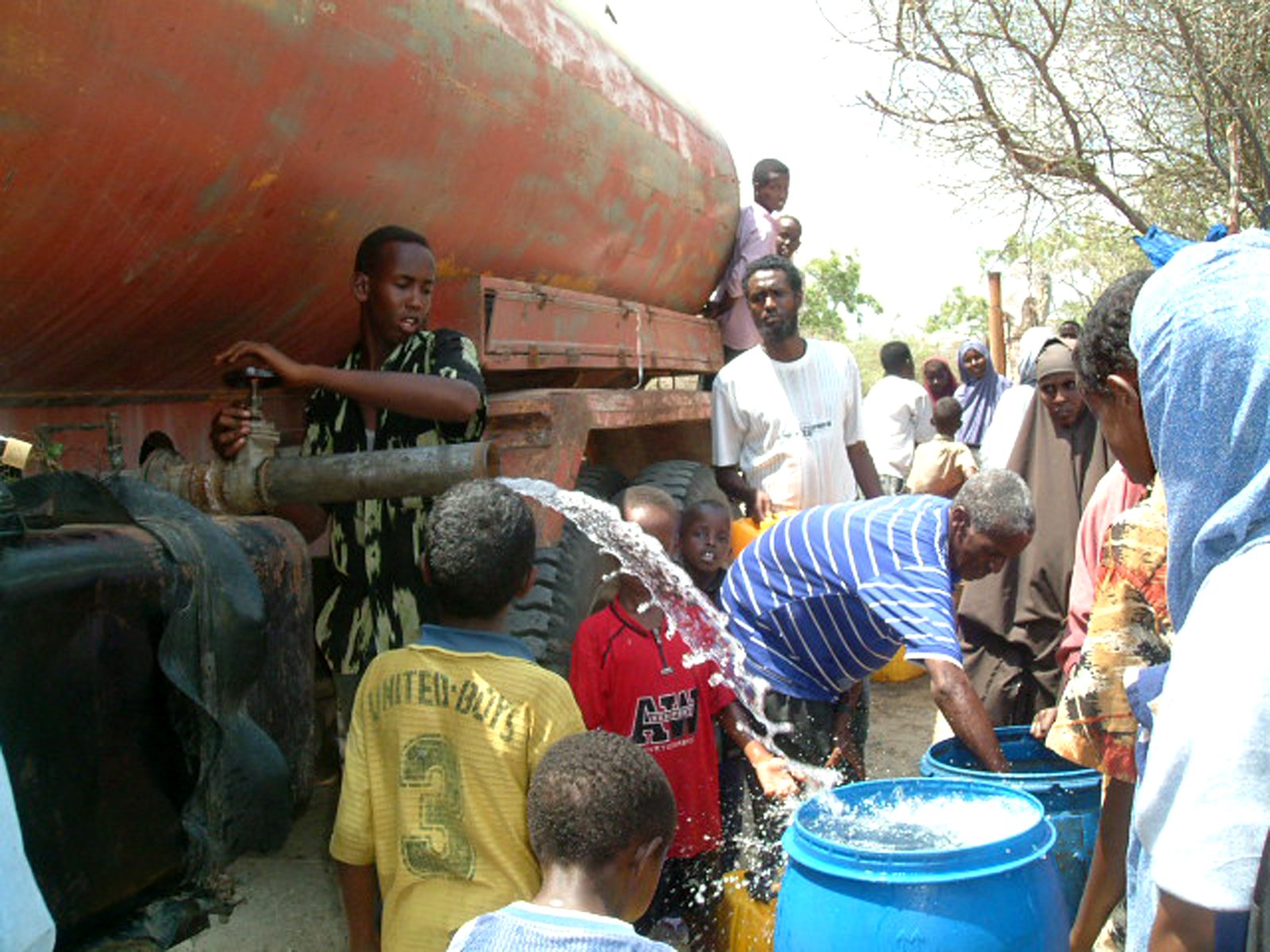"We started last week and we did it because we see the plight of the displaced every day," Sheikh Abdifatah Aweys, a religious leader, told IRIN on 9 February. "For now we are addressing the most pressing problem, and that is water."
Aweys said their efforts were not meant to replace aid agencies who were absent on the ground at present: "We know we cannot cover everything, so we are doing what we can. These are our people and our religion dictates that you help those less fortunate."
Aweys said the group went around Bakara market collecting donations from the business community and had set up billboards showing the poor living conditions of internally displaced persons (IDPs).
"People have been amazing; even those with little contribute," he said.
The group has so far helped about 8,500 [51,000 people] families with water.
"I know it is not much given the number of displaced inside and outside the city but it is a start and we will redouble our efforts," Aweys said.
Extending aid
A civil society source, who requested anonymity, told IRIN that due to insecurity, international aid agencies had little access to IDPs but that local groups could move around more easily.
|
Photo: Manoocher Deghati/IRIN  |
| A group of IDPs at a past food distribution: Community leaders in Mogadishu are filling the gaps in aid distribution by raising funds to the displaced (file photo) |
He added: "We don't have to wait and say we don’t have much. Every little thing helps."
Mahamud said if the contributions continued, they would address other needs, such as food and medicine.
Abdullahi Salad, a displaced person and one of the beneficiaries, told IRIN his camp had depended on water trucking by an international aid agency but this had stopped in January.
"Since 1 January, we have not had any water until this local group started delivering it five days ago," Salad said.
He said that Bashi camp, with more than 600 families, had received regular water deliveries over the past five days.
Aweys said they had funds to deliver water to the camps for 20 days. "I am hopeful that we will get more donations from Somalis to continue and expand [distribution]."
He said his group was not affiliated with any of the forces fighting in Mogadishu.
New offensive rumoured
Mogadishu has been a battleground for troops loyal to the government of President Sheikh Sharif Ahmed and two Islamist armed opposition groups, including the militant Al-Shabab group, which controls much of the south and centre of the country.
Meanwhile, people continue to flee Mogadishu due to fears of renewed clashes, according to the Mogadishu-based Elman Human Rights Organization.
Ali Sheikh Yassin, the deputy chairman, told IRIN many more people were leaving the city because of reports that the government was about to start a new offensive against the insurgents.
"There have been troop movements on both sides and we are all waiting for this new offensive to begin," he said. “It is fear that is driving the current exodus."
ah/mw
This article was produced by IRIN News while it was part of the United Nations Office for the Coordination of Humanitarian Affairs. Please send queries on copyright or liability to the UN. For more information: https://shop.un.org/rights-permissions



